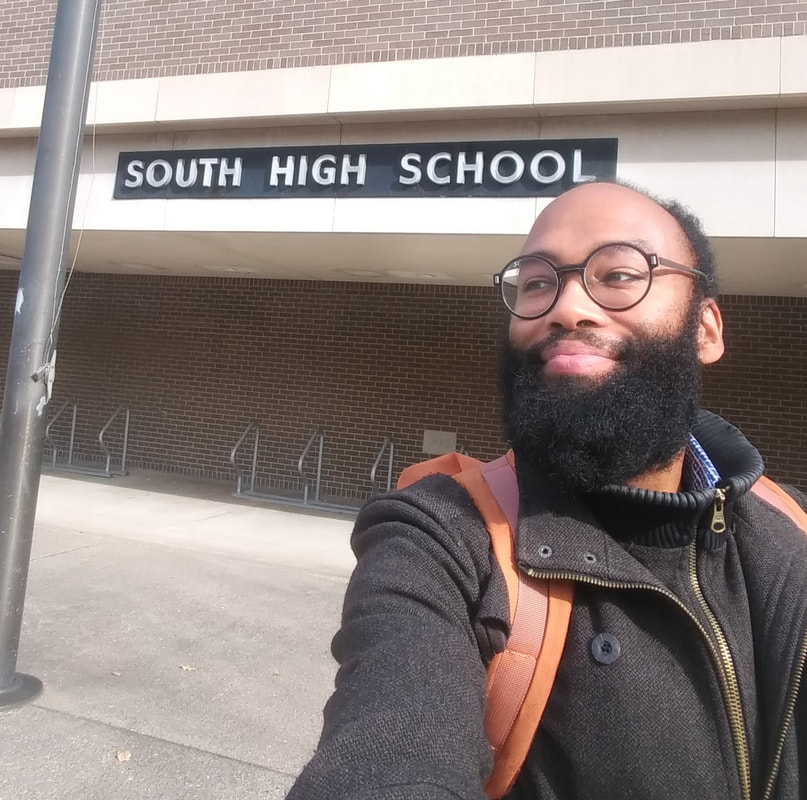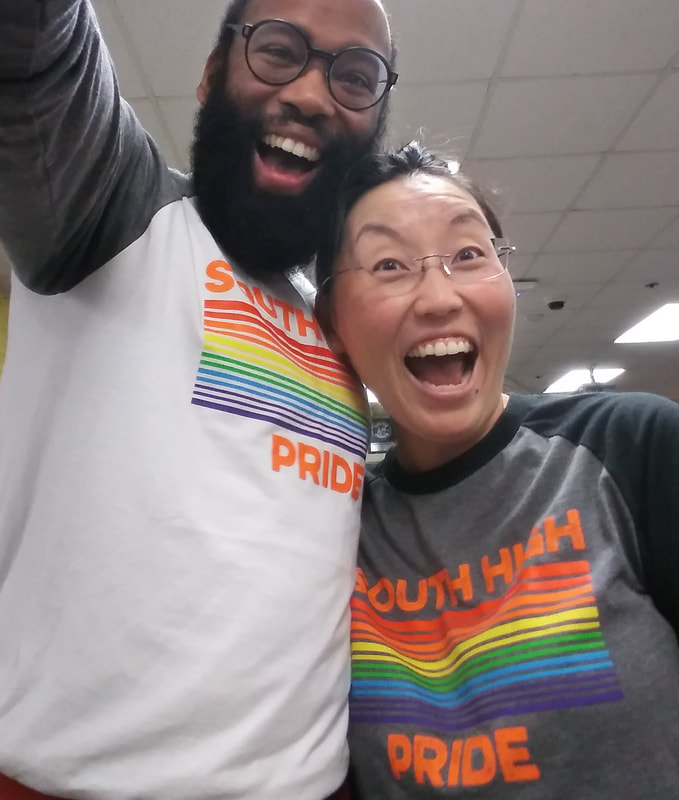|
by Anthony R. Green Since September 25th (2018) I have been in Minneapolis executing a project as a McKnight Visiting Composer fellow. This program, in partnership with the American Composers Forum in St. Paul, has supported projects from composers who do not live in the Twin Cities, and invites them to live there and work on a proposed project. During my work with Castle of our Skins, it became apparent that part of my practice should include teaching young students - especially those who want to pursue careers in music - about the rich history and legacy of Black composers. Hence my project: teaching young students about this history, performing their music and playing recordings of their music, and collaboratively composing music together. The school which received the bulk of my sessions is South High School. Located in the Corcoran neighborhood, not too far from the Mississippi River, at South High School I worked with 9 different ensembles: the treble choir, bass choir, varsity choir, concert choir, string orchestra, beginning band, concert band, wind ensemble, and the symphonic band. I also worked with one choir at Sanford Middle School, not too far away from South High School. In total: 10 ensembles and over 300 students ranging from age 12 to 17! The sessions have included a mixture of discussing the lives of Black composers, placing them in a historical context, listening to their music, answering questions, and composing and rehearsing for the upcoming concerts (November 7, 8, and 9). Together we discussed Chevalier de Saint-Georges, Samuel Coleridge Taylor, Blind Tom, Scott Joplin, Margaret Bonds, Florence Price, myself, George Walker, Renee Baker, and Jessica Mays. I also talked about my work with Castle of our Skins, and my own personal history with regards to studying Black composers in my university/conservatory career (i.e. it did not happen). The majority of the students were enthusiastic about hearing these stories and the music, and asked some wonderful questions, some regarding the historical context, some regarding notation (when scores were shared), and some regarding the biography of the composers. There was a general feeling of wonder as to how some of these composers would not be discussed, especially Chevalier de Saint-Georges in the context of Mozart considering their known-but-not-deeply-examined relationship. Many of the students also had strong opinions about music in general, and had wonderful observations about the musical examples that I played, especially after playing Blind Tom's The Battle of Manassas. The teachers were also quite enthralled by the discussions, admitting that they also have not heard or studied these composers and their music either on their own or in their respective post-secondary institutions (except for Scott Joplin). They also responded well to how I interacted with the students during the collaborative composition sessions. The created works will run the gambit of tonal, melodic music to experimental, improvisatory creations. There was an observed pride in the students as they rehearsed the pieces that we all created together, and I genuinely hope that these sessions stick with them throughout their lives. As the conversation about Black composers and marginalized voices within Classical Music and New Music continues, it is so important - perhaps now more than ever - to have Black voices and marginalized voices lead education sessions for young musicians. It was pleasantly surprising to see that Mr. Sayre (the leader of the wind ensembles) placed images of the composers who will be featured this school year on the wall, and the bulk of those composers were people of color, women, and represented cultures around the world. This will hopefully get the message across to students that composition is not relegated to people who look a certain way or are a certain gender. My presence as a leader, my discussion of my musical and organizational work, and my playing the piano for these students provided them with an image of Black male who has survived a world that can be harsh to Black people. In sharing these stories, I hopefully also conveyed the message that Black people have been surviving and thriving in this world for a while, but history simply does not like to discuss it. There are too many people to thank and too many positive experiences to mention, but I do want to express my sincerest gratitude to Ms. Laurie Myers (pictured above) for squeezing this project in at the last minute and making room for me to come in and work with some incredible students. I also want to thank the music staff at South High School, Ms. Tara Finne and Ms. Oleson at Sanford Middle School, the McKnight Foundation for their financial support, and the amazing people at the American Composers Forum who have welcomed me with open arms! I am enthusiastic about the 8 world premieres that will take place between November 7, 8, and 9, and looking forward to hearing any music that these talented students perform in the future! In the interim, please enjoy this recording (click this text!) of the String Orchestra performing String Meditation (2018).
0 Comments
Leave a Reply. |
Details
Writings, musings, photos, links, and videos about Black Artistry of ALL varieties!
Feel free to drop a comment or suggestion for posts! Archives
May 2024
|
Member Login
Black concert series and educational programs in Boston and beyond



 RSS Feed
RSS Feed










